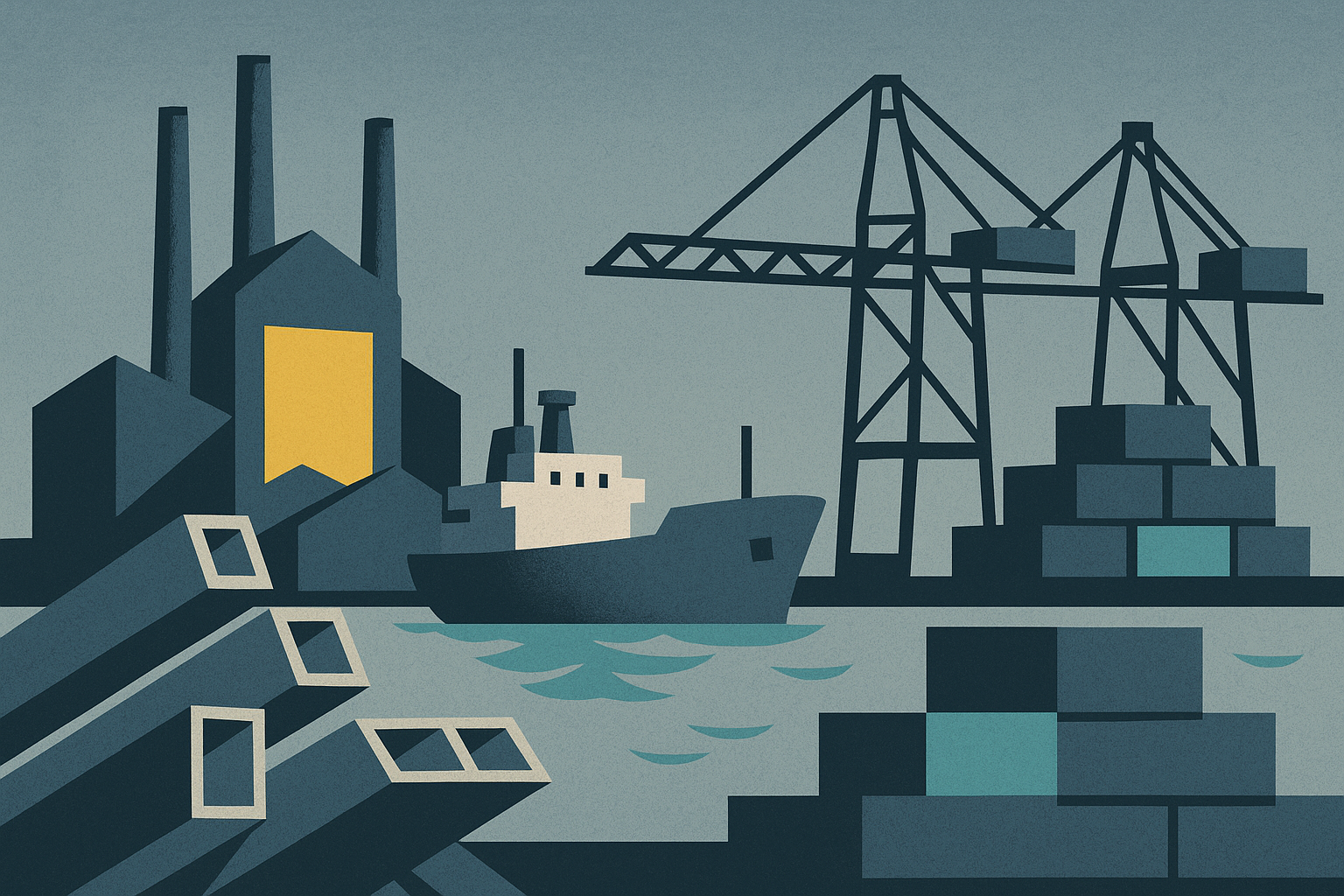Britain’s steel industry received a significant boost this week as the European Commission reinstated the UK’s Category 17 steel quota, allowing British producers to export up to 27,000 tonnes per quarter of structural steel to the EU tariff-free from 1 August 2025. The move reverses a period of Brexit-induced disruption that left the UK’s exporters facing sharply reduced access to key European markets.
Category 17 includes non-alloy steel angles, shapes, and sections — materials crucial to the construction and infrastructure sectors. The EU’s decision follows a period of tight import caps introduced in early 2025, which limited any single country to just 15% of the overall quota. This left British steelmakers with a dwindling allowance; by mid-year, fewer than 200 tonnes remained for UK exporters in the third quarter.
Under the new policy, country-specific quotas for the UK, Turkey, and South Korea have been reintroduced. The UK is now allocated approximately 27,000 tonnes per quarter — around 40% of the global quarterly limit for this steel category. The update also restores a residual quota for ‘other countries’ with a 40% per-country cap, aiming to balance historic flows while maintaining structural safeguards.
The UK Government has welcomed the decision as part of its broader “Plan for Change” industrial strategy. The Department for Business & Trade described the move as a “win for UK industry,” highlighting the government’s recent £500 million support package for green steel investment at Port Talbot and ongoing efforts to nationalise British Steel. Trade Secretary Jonathan Reynolds MP said, “Restoring the quota offers much-needed predictability and helps sustain jobs across the steel sector.”
Industry groups have echoed this optimism. Gareth Stace, Director General of UK Steel, described the quota restoration as “excellent news,” stating that compliance challenges around Category 17 had previously caused “significant difficulties for our exporters.” Lisa Coulson of British Steel noted the practical impact for major facilities, particularly at Scunthorpe, Teesside, and Skinningrove, calling the tariff removal “a significant business boost.”
Political debate remains, with a Conservative shadow spokesperson describing the allocation as “small” and pointing to unresolved US tariffs that still affect UK steel exports. The UK continues to face a 25% tariff on steel exports to the US, with talks over origin rules yet to deliver full relief.
Approximately 75% of UK steel exports — worth around £3 billion annually — are destined for the EU. The return of predictable quota volumes will provide stability for domestic facilities and safeguard jobs, particularly in high-value engineering and construction supply chains. For the EU, the safeguard reset is a response to both Brexit realities and a recent surge in Chinese Category 17 steel exports, which grew from fewer than 700 tonnes in 2022 to more than 41,000 tonnes in the first five months of 2025.
While the immediate pressure on UK steelmakers is eased, wider challenges remain. Energy costs, the transition to green steel, and ongoing trade negotiations with both the US and EU will continue to shape the outlook for Britain’s steel sector over the coming year. For now, the policy shift restores a critical commercial lifeline for UK producers, underpinning the country’s structural steel trade as it enters a new phase.




